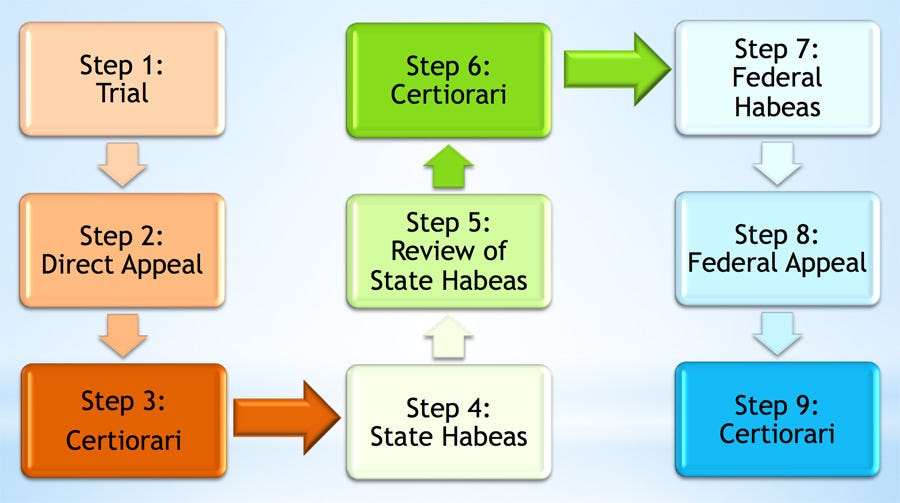Legal Terms: HABEAS CORPUS
You have the body, but can you keep it?
Saturdays are perfect days for legal surprises. Surprise—we’re talking about meaning of habeas corpus!
Habeas corpus is a United States judicial order forcing law enforcement authorities to produce a prisoner they are holding, and to justify the prisoner's continued confinement. A Writ of Habeas Corpus orders law enforcement officials to produce a prisoner in court and justify their detention before a judge. The court then determines if the detention is lawful.
Essentially, habeas corpus is a legal protection against arbitrary detention meant to ensure that individuals are not held without due process. While habeas corpus is correctly identified as a U.S. constitutional right, the protection has both a history and international adoption that predates the founding of the United States, dating back to the Magna Carta and the Habeas Corpus Act of 1679 in England.
BREAKDOWN: The term habeas corpus derives from a Latin phrase meaning you have the body.
The root HAB- means to hold in words like inhibit and habitation.
The root CORP- means body in words like corpulent and incorporeal.
“Freedom of religion, freedom of the press, freedom of person under protection of habeas corpus; and trial by juries impartially selected, these principles form the bright constellation which has gone before us, and guided our steps through an age of revolution and reformation.” —Thomas Jefferson



